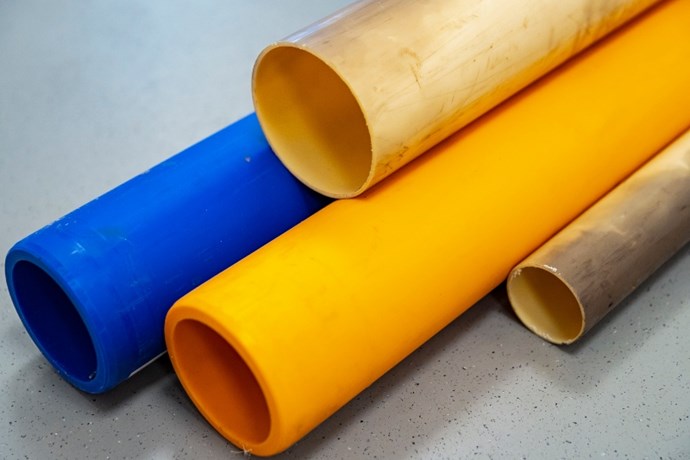The potential of polymers in the energy transition
The energy transition is in full swing, that is for sure, but reaching climate targets is currently a matter of all hands on deck. Hydrogen can be the crucial boost and renewable energy carrier that is needed to realize the ambitious goals. But with the phasing out of oil and natural gas, the important question arises as to whether there is still a future for the existing natural gas network and what other alternatives could be. A promising viable solution, suitable also for the most demanding environments, may come from a somewhat unexpected source: polymers, or in other words plastic and the piping systems made from them.
Advanced polymers and their convenience
Polymers are used for a wide range of applications including low pressure distribution pipes or in composite pipes (FCP and RTP) for the high pressure transport of gases and fluids. Besides well-known applications in the oil & gas, and water sector, polymers are more and more applied for the transport of renewable gases like hydrogen. "We get a lot of questions from manufacturers to validate their polymer pipe solutions with testing programs and results assessment or to help them in the development’, says Harald Ophoff, Account manager Energy at Kiwa. "That does indicate that polymers are currently an hot topic in the market and that evaluating their hydrogen suitability is deemed crucial in order to ensure a safe, reliable and high-quality infrastructures."

"Yet at an international level, the focus in the distribution of hydrogen still often lies on the traditional materials being metals. But I believe it would be a shame to ignore the potential of polymers and polymer piping systems. For example, polymers show a good compatibility with a lot of gases and fluids while a polymer piping system will be faster to install and requires less maintenance during its lifetime. Furthermore, frequently we hear that one of the most uphill challenges related to the energy transition has to do with the amount of additional costs. For that reason it is crucial to look for affordable alternatives. Using a polymers piping infrastructure can help in this, since considerable transportation, installation, and maintenance cost reductions could be enabled."
Material assessment
Harald continues: "Off course such an infrastructure comes with high requirements concerning technical and operational safety. And that is where Kiwa comes in. We have been an expert in the field of natural gas distribution for many years and have gained a lot of knowledge and experience along the way. At the same time we were one of the forerunners in testing with hydrogen, which altogether gives us an unique position in the hydrogen market. We perform risk and engineering assessments and our hydrogen and material experts work together to design the most appropriate test campaign based on the specific polymer materials and application. Testing could include polymer hydrogen compatibility studies and permeation measurements. Based on the specific demand we even measure the permeation of the various polymer piping components in full-scale test set-ups at elevated temperatures and hydrogen pressures. Once the testing programs are finished we can actually do all the hydrogen tests in our hydrogen laboratory."
"The right material assessment can facilitate the deployment of polymer pipe systems in the hydrogen transportation and distribution sector. We are here to help our customers, as a partner for progress, and have the right capabilities to assess your polymer product. Together we can make the energy transition work."
More information
Would you like more information about having an assessment of your polymer products carried out by Kiwa? Please contact us!



